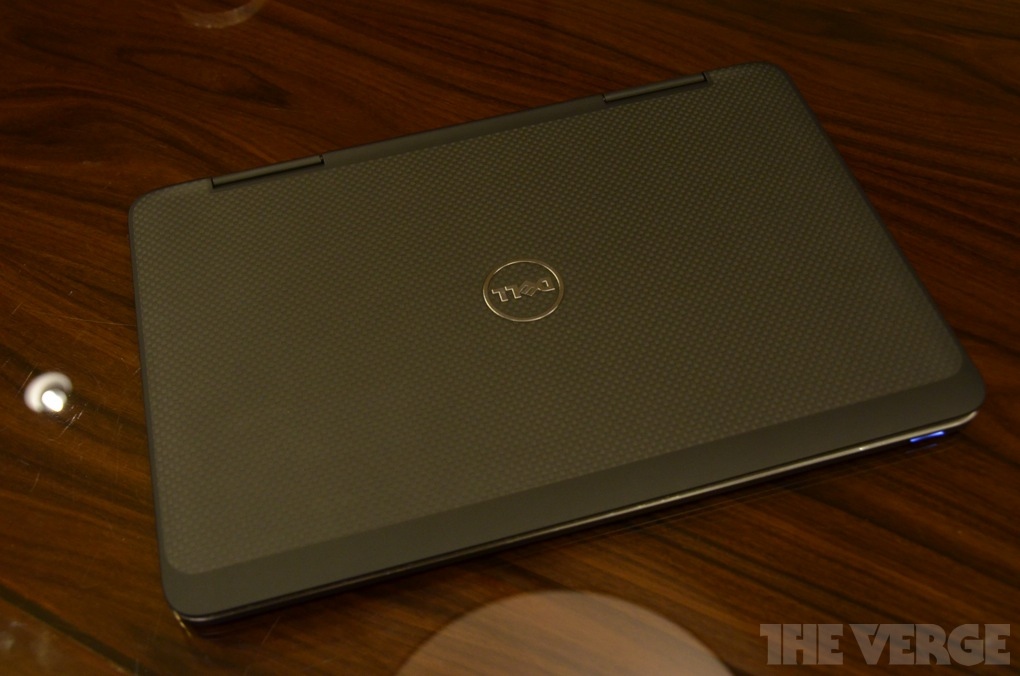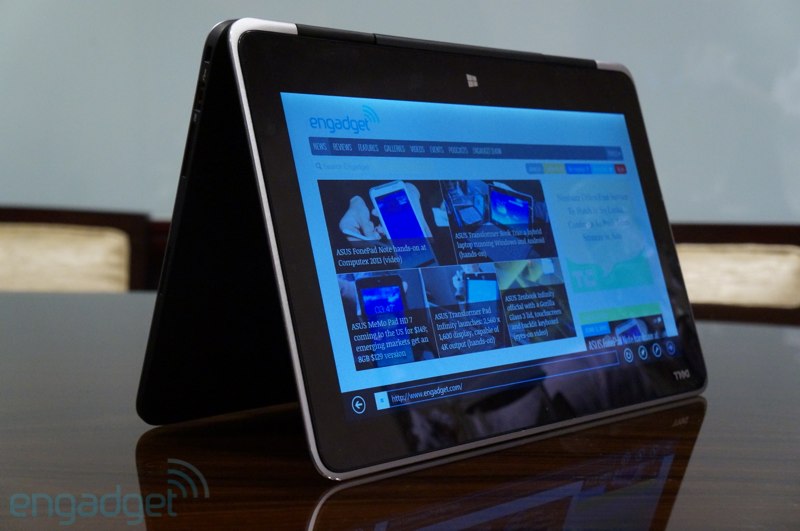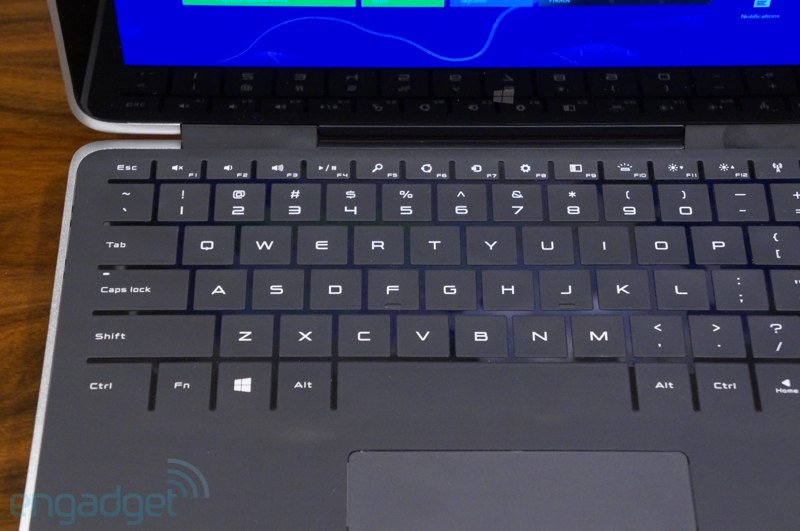Dell is making a pretty quiet entrance to this year’s Computex, unlike other Day 0 announcements from Acer and ASUS today. Its sole product on display, however, is capturing the attention of many in attendance. The Dell XPS 11 is currently still only a prototype, but it’s definitely one of the most talked-about devices from today’s series of announcements.
Article continues after the break.
While it is obvious that the XPS 11 is inspired by the Lenovo IdeaPad Yoga’s 360-degree flipping hinge, Dell’s take on the hinges are clearly different, and it also takes a radically different approach in terms of the keyboard. One of the biggest complaints I had on the original IdeaPad Yoga was how the user ends up grabbing parts of the keyboard when used in Tablet mode. Despite the fact that the keyboard is automatically disabled in Tablet mode, it wasn’t a well-executed approach despite the innovative idea. In addition, the added thickness and weight makes for a bulky device that is unsuited for use as a tablet for long periods.
So how does Dell tackle this issue for the XPS 11? By going radical, of course. Dell has made a huge gamble on this hybrid device by implementing a keyboard very similar to Microsoft’s Touch Cover keyboard, with no travel on the keys. When flipped into Tablet mode, the keyboard and touchpad automatically switches off, and leaves a completely flat surface for better ergonomics. Also, the use of such a keyboard also allowed Dell to dramatically shave some serious bulk off the XPS 11, resulting in a super slim chassis that is less than 15mm thin.
The keyboard is certainly the main point of interest for many, but do keep in mind the other aspects of the device are pretty awesome, too. The Dell XPS 11 sports a super dense, 2560 x 1440 11.6-inch IPS touchscreen that will also come with a built-in digitizer stylus. Also, the device will be powered by the new Intel Haswell processors, promising significantly increased performance and battery life compared to its larger XPS 12 sibling – of which it has also inherited the handsome carbon fibre and aluminium body. Finally, besides the standard set of connectivity ports such as USB 3.0 and SD card reader, the Dell XPS 11 will also be equipped with a Thunderbolt port.
As a prototype, the other details on the hardware, such as storage and memory options as well as the full connectivity options were not revealed. Dell has promised, however, that more details will be revealed as they get closer to a tentative release date slated towards the end of the year.
(Sources: Engadget, The Verge)
Follow us on Instagram, Facebook, Twitter or Telegram for more updates and breaking news.




